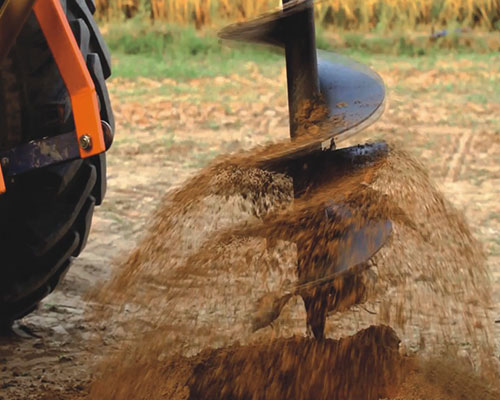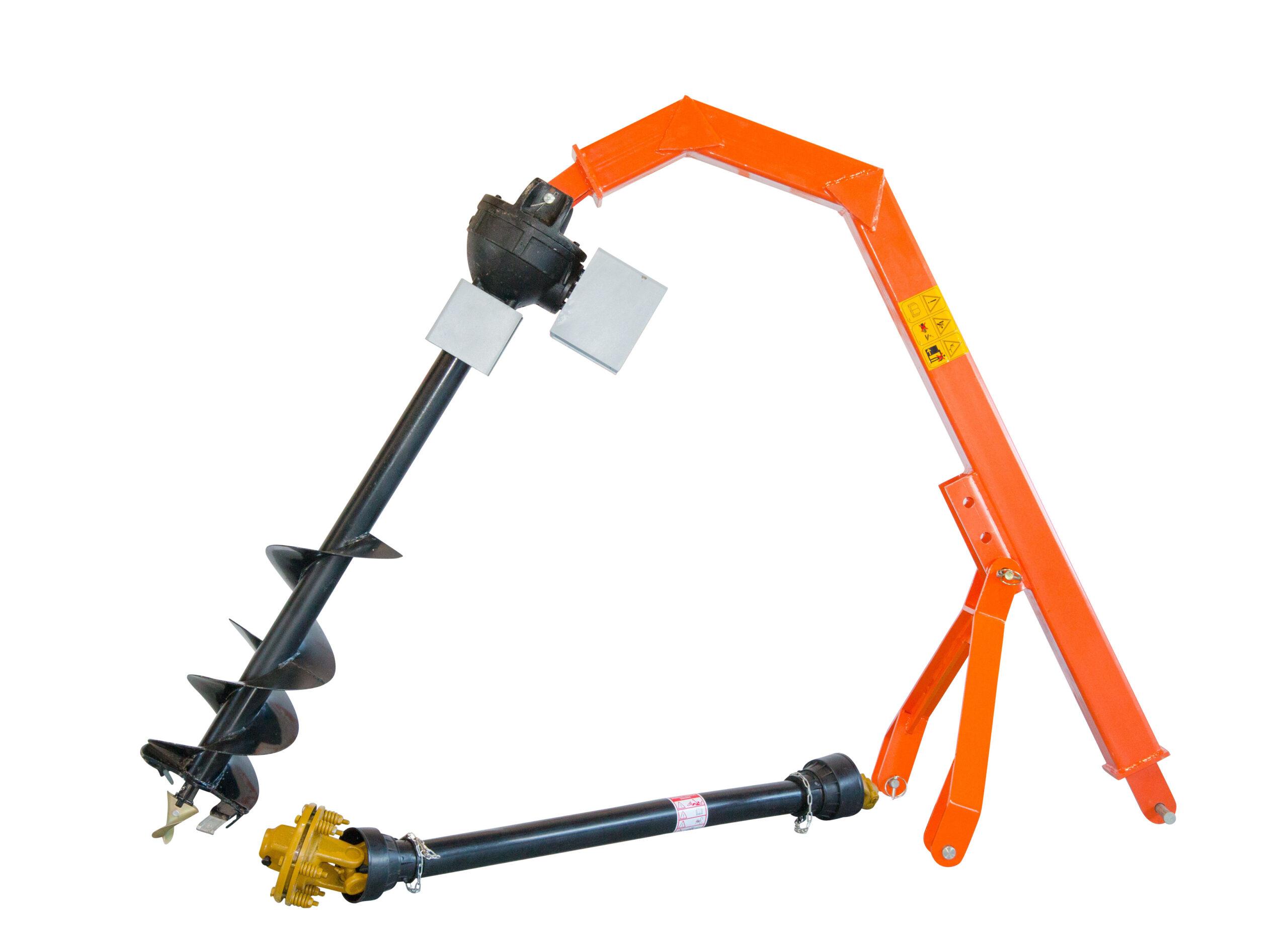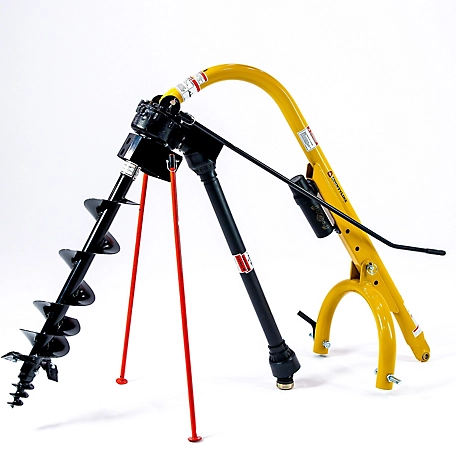Product Description
1. More than 15 years experience of garden machinery
2. Factory direct price
3. Have 2 or 3 new model every year
4. Nice quality,Full refund in case of bad quality
5. Small orders welcome
6. Quick shipping within 10 days
7. VIP Buyer One-Stop Service
8. Engineers Provide technical services.
Product Description
/* March 10, 2571 17:59:20 */!function(){function s(e,r){var a,o={};try{e&&e.split(“,”).forEach(function(e,t){e&&(a=e.match(/(.*?):(.*)$/))&&1
| Feature: | 2-Stroke |
|---|---|
| Bit Diameter(mm): | 200 |
| Style: | Hand-Held Earth Auger |
| Power Source: | Petrol / Gas |
| Transport Package: | 1PCS/2catons |
| Trademark: | Jusen |
| Customization: |
Available
| Customized Request |
|---|

What factors should be considered when selecting the right post hole digger for a job?
When choosing the appropriate post hole digger for a job, several factors should be taken into consideration. These factors help ensure that the selected digger is well-suited for the specific requirements of the project. Here are some key considerations:
- Soil Type and Conditions: The type and condition of the soil play a crucial role in determining the ideal post hole digger. Consider whether the soil is soft, sandy, clayey, compacted, or rocky. Different diggers have varying capabilities in handling these soil types. For example, harder soils may require more powerful motorized diggers or specialized blades, while softer soils may be manageable with manual or smaller-sized diggers.
- Project Scale and Scope: The scale and scope of the project influence the selection of a post hole digger. Determine the number of holes that need to be dug and the depth and diameter requirements of the holes. Larger projects with numerous holes may benefit from motorized diggers that offer faster and more efficient digging. Smaller projects or occasional use may warrant manual diggers for cost-effectiveness.
- Available Power Source: Consider the availability of power sources at the job site. Motorized post hole diggers typically require access to electricity or fuel, such as gas or propane. If the job site lacks these power sources, manual diggers may be a more suitable choice. Additionally, consider the portability and maneuverability of the digger if the job site is in a remote or hard-to-reach location.
- Operator Experience and Strength: Assess the experience and physical strength of the operator(s) who will be using the post hole digger. Motorized diggers are generally more powerful and require less physical effort compared to manual diggers. If the operator is inexperienced or lacks sufficient strength, it may be advisable to opt for a motorized digger to ensure efficient and safe operation.
- Budget and Cost Considerations: Set a budget for the post hole digging project and consider the cost of different digger options. Motorized diggers tend to be more expensive upfront but can save time and effort in the long run, especially for larger projects. Manual diggers are typically more budget-friendly but may require more physical exertion and time investment.
- Additional Features and Accessories: Evaluate any additional features or accessories that may be beneficial for the project. Some post hole diggers offer adjustable depth settings, ergonomic handles, or anti-vibration systems for operator comfort. Assess whether any specific accessories, such as auger extensions or sharpening tools, are available or needed for the task at hand.
By considering these factors, project managers or individuals can make an informed decision when selecting the right post hole digger. It is essential to choose a digger that matches the soil conditions, project requirements, available power sources, operator capabilities, budget, and any desired additional features or accessories.

What safety precautions should be followed when using a post hole digger?
When using a post hole digger, it is essential to prioritize safety to prevent accidents or injuries. Adhering to proper safety precautions ensures the well-being of the operator and anyone in the vicinity. Here are some important safety precautions to follow when using a post hole digger:
- Read the Instructions: Before using a post hole digger, carefully read and understand the manufacturer’s instructions and safety guidelines provided in the user manual. Familiarize yourself with the specific operating procedures, recommended safety equipment, and any limitations or precautions associated with the digger.
- Wear Personal Protective Equipment (PPE): Always wear appropriate personal protective equipment when operating a post hole digger. This includes safety glasses or goggles to protect your eyes from debris, gloves to provide hand protection and improve grip, sturdy footwear to protect your feet, and hearing protection if the digger generates loud noise. PPE helps minimize the risk of injuries and enhances operator safety.
- Inspect the Digger: Before each use, inspect the post hole digger for any signs of damage, wear, or loose components. Check the handles, blades, auger, and fasteners to ensure they are in good condition and properly secured. Any damaged or worn parts should be repaired or replaced before operating the digger.
- Clear the Work Area: Clear the work area of any obstacles, debris, or tripping hazards before using the post hole digger. Remove rocks, branches, or other objects that could interfere with the digging process or cause accidents. Maintain a safe distance from bystanders or other workers in the vicinity to prevent accidental contact or injury.
- Call Utility Companies: Before digging, contact the relevant utility companies to identify the location of underground utilities such as gas lines, water pipes, or electrical cables. This helps prevent accidental damage to utility lines, which can pose serious safety risks. Follow any guidelines provided by utility companies for safe digging practices in proximity to their infrastructure.
- Use Proper Digging Techniques: Follow the recommended digging techniques provided by the manufacturer. Use controlled and steady movements to dig the hole, avoiding sudden or jerky motions. Do not force the digger beyond its capabilities or apply excessive pressure, as this can lead to instability or damage to the digger. Pace yourself and take breaks as needed to prevent fatigue.
- Watch for Underground Hazards: While digging, be vigilant for underground hazards that may not be visible, such as tree roots, rocks, or buried debris. These obstacles can cause the digger to become unstable or abruptly stop, leading to accidents or injuries. If you encounter any unexpected resistance or obstruction, stop digging and inspect the area before proceeding.
- Store Safely: After use, store the post hole digger in a safe and secure location, out of the reach of children or unauthorized users. Store it in an upright position or as recommended by the manufacturer to prevent accidental tripping or damage. Proper storage ensures that the digger remains in good condition and reduces the risk of accidents during handling or retrieval.
- Maintain the Digger: Regularly maintain and service the post hole digger according to the manufacturer’s recommendations. This includes cleaning, lubricating moving parts, inspecting for wear or damage, and replacing any worn or damaged components. Well-maintained equipment operates more safely and efficiently, reducing the risk of accidents.
By following these safety precautions, operators can minimize the risk of accidents or injuries when using a post hole digger. Prioritizing safety through proper equipment usage, wearing appropriate PPE, inspecting the digger, clearing the work area, identifying underground utilities, using proper digging techniques, watching for hazards, storing the digger safely, and maintaining the equipment ensures a safer working environment and promotes responsible operation.

Which industries commonly use post hole diggers for their operations?
Post hole diggers are utilized in a variety of industries and sectors for their hole-digging capabilities. Here are some of the industries that commonly use post hole diggers as part of their operations:
- Construction: The construction industry frequently relies on post hole diggers for various applications. They are used for digging holes to install fence posts, signposts, or structural supports. Post hole diggers help ensure the stability and durability of structures by creating solid foundations.
- Landscaping and Gardening: Landscaping and gardening professionals often utilize post hole diggers in their work. These tools aid in digging holes for planting trees, shrubs, or installing landscape features such as garden borders, trellises, or pergolas. Post hole diggers make it easier to create the desired layout and design in outdoor spaces.
- Agriculture and Farming: In the agricultural and farming sectors, post hole diggers are used for various purposes. They assist in setting up fencing systems to secure livestock or create boundaries. Post hole diggers are also employed for installing posts for crop supports, such as trellises or vineyard posts.
- Utilities and Infrastructure: Utility companies and infrastructure development projects often require post hole diggers. These tools are used for installing utility poles, streetlights, or signage along roads and highways. Post hole diggers help ensure the proper placement and stability of these essential infrastructure components.
- Outdoor Recreation and Sports: Post hole diggers find applications in outdoor recreational facilities and sports venues. They are used for installing posts for netting systems in sports fields, setting up goalposts, or creating boundaries for recreational areas. Post hole diggers enable the proper layout and organization of spaces for various outdoor activities.
- Event and Tent Rental: The event industry and tent rental companies utilize post hole diggers for setting up temporary structures. These tools are used to create holes for anchoring tent poles or securing event signage and banners. Post hole diggers aid in the efficient and secure installation of temporary structures for events and gatherings.
- Home Improvement and DIY: Post hole diggers are commonly used by homeowners and DIY enthusiasts for various projects. They are employed in tasks such as fence installation, deck construction, or backyard landscaping. Post hole diggers provide individuals with the means to tackle these projects effectively and efficiently.
These are just a few examples of the industries that commonly utilize post hole diggers. The versatility and functionality of these tools make them valuable in a wide range of applications across different sectors.


editor by CX 2023-12-30